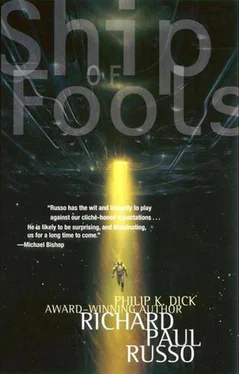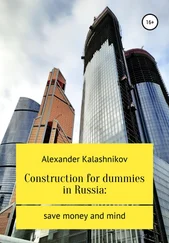I sat and stared at the tray for a long time, thinking. Was I being offered poison? An honorable end? I couldn’t imagine what else it would be, but at the same time I couldn’t believe that it really was poison.
Eventually I went over to the tray, released the top of the thermal pot, and poured hot, dark brown liquid into the glass cup. It smelled like coffee.
I let it sit there steaming for a minute or two, then I picked up the cup and raised it to my face. I breathed in deeply, and the coffee aroma was strong, without any other detectable odors. I thought to myself, What does it matter? I brought the cup to my mouth and drank.
It was coffee. Hot and strong and so delicious I knew only one person could have made it.
I drank slowly, savoring it, then capped the pot, sealing in the heat. Enough for two or three more cups remained, and I saved it; the thermal pot would keep it warm for another day.
I wondered where he was, and how long he could remain free.
NOchanges now. There were no more visits from Father Veronica, nor anyone else. Every five or six days another full pot of coffee would arrive, and each time I rationed it. I relished it greatly, but I wished I could contact him somehow and tell him not to send any more, tell him not to risk his freedom. And yet… the coffee was a great comfort to me, and I knew I would miss it if it stopped, just as I missed Father Veronica.
I thought of her often. Prayer, for me, was still impossible. I suspected it always would be.
Ihad been imprisoned for several weeks, but I was still content; at last I came to understand why: I didn’t believe I would be locked up for very long.
I had heard nothing at all from the captain, but his sense of security on this ship would not last forever. He was the “savior” for the moment, but this would pass, and people would realize that little had actually changed; the Argonos was still a ship without a mission, and the maneuvering would resume, the probing of weaknesses, the pushing, the stresses. The captain would find himself pressured from all sides; he would find himself alone, with no one he could trust, and he would find himself once again in need of my advice. The day would come when he needed me .
If I was any judge of what things were like on this ship, and of what people were like, that day would come soon. And when it did, someone would come to the door, unlock it, then step aside for me, and I would be free.
MYsense of contentment did not last. The weeks became months—far longer than I had expected. The tedium was mind-numbing. There was simply nothing to do. I asked for writing supplies and tried to work daily on a chronicle of sorts, a recounting of the events that had brought me to my cell; a task to sharpen and focus my mind. But soon after Father Veronica’s visits ceased, I had brought the chronicle up to date and had little else to write about—rambling, barely coherent thoughts.
I began exercising vigorously, eating every morsel of tasteless food, trying to pull myself together and clear my mind. I re-read all that I had written. I destroyed much of it (though what I did save serves me well now as a reminder of details surrounding those events), and determined not to write any more.
I had no visitors in all that time. Father Veronica would have come if she had been allowed to, I was certain of that. Pär, of course, could not. When I realized there was no one else who would have wanted to visit me, I was surprisingly depressed.
Then I sensed a change. I didn’t know what it was, and I couldn’t determine where it was coming from, but I was certain it was there—in the ship somewhere, something… Something had happened. I could feel it.
The routine did not vary for the next few days—food and monotony remained the same—but the feeling persisted, grew stronger.
One morning I received another pot of coffee. When I poured out a cup, I noticed something flash inside the pot. I pulled out a strip of plastic on which was printed these words: SOMETHING’S BEEN FOUND.
What did that mean? It was important, or Pär would not have risked adding the note.
I felt energized, and my hope for release was rekindled.
Something’s been found .
BUTafter that, nothing.
Days passed, then weeks. Could I have been wrong?
No, I still sensed a strange tension. Undefined, but palpable. And yet, there were no further messages from Pär; in fact, even the coffee ceased to arrive. That alone distressed me.
I began to feel out of control. I paced my cell. I fought the urge to pound on the door and demand my release. My left eye twitched uncontrollably much of the time, and even my own skin seemed confining.
Unfulfilled expectations. Each time I heard a sound, I expected someone to appear at my cell door—Father Veronica, Nikos, Pär, anyone. To release or visit me; either one, I didn’t care.
I spoke to the masked and shielded guards who brought my food, but they did not respond. Even the one who normally brought the coffee from Pär would not acknowledge me, refused to look at the handwritten questions I held up before his masked face.
What was happening out there?
Ibegan to dream of Antioch again. Skeletons. Bones and ravaged skulls and stifling jungle. I dreamed repeatedly of the failed mutiny. Each time, the actual events were slightly different, strange and distorted from what had happened, but the dreams always ended with the harvesters rising silently outside the open transport-hold doors, blazing mouths waiting to devour me.
MOREtime passed, the days interminable. I came to believe that whatever had happened, whatever had been found , would have no effect on my confinement. My hopes faded, and I prepared myself again for an indefinite stay.
ONEday a man named Geller, who had spent two terms on the Executive Council some years back, entered my cell without warning. I was only half-dressed, lying on the floor working through the daily stretching and exercise routine for my back, the exoskeleton propped against the bed.
Geller stopped, looked down at me, then looked away. “I’ll come back later,” he said.
“No, don’t.” I didn’t know why he was here, but I didn’t want him to leave, not even if he had bad news.
I turned over and pulled myself up onto the edge of the bed, put on my shirt, then worked my upper body into the exoskeleton. As I struggled with it, I glanced at Geller. He kept his eyes turned away from me; he knew I didn’t want any help. I remembered him as a quiet man who took his position on the Executive Council seriously. He was intelligent and thoughtful, made reasoned and forceful arguments without being aggressive or obnoxious, and always voted with principle, even in a losing cause. Because he could not be manipulated, he had been replaced by General Wainwright, who could be.
When I was finished I offered him a seat, but he declined.
“I won’t be long,” he said. “I am here to inform you that you are to be released tomorrow.”
I sat on the edge of the bed, stunned. I should have been elated, but felt more disoriented than anything else. I don’t think I quite believed it, although I could not imagine Geller’s being involved in any kind of deception; at least, not knowingly.
“Released,” I repeated.
“Yes. Tomorrow morning at 0900.”
“Why?”
Geller just shook his head. I didn’t know whether that meant he didn’t know or he was forbidden to tell me.
“Is this to be temporary, or permanent?”
Читать дальше












